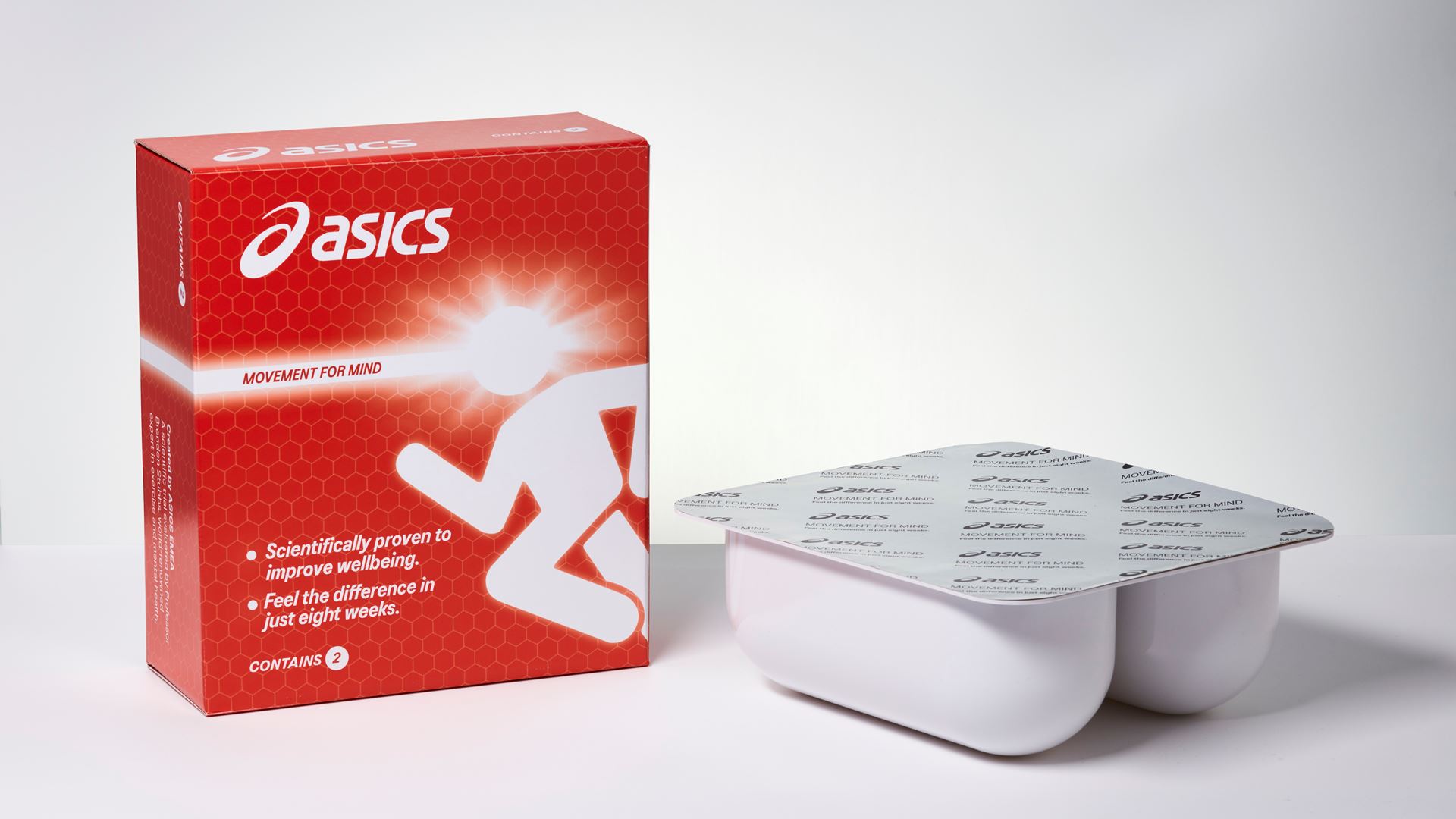Results from one of the largest independent, randomised control trials proves the positive impact of movement on mental wellbeing.
[21 October 2021 – Hoofddorp, The Netherlands] – Today, ASICS releases the results of one of the largest independent trials proving that a simple, movement-based programme can meaningfully improve workers' mental wellbeing. Those taking part in the ASICS Movement for Mind programme significantly improved their mental wellbeing on the internationally recognised Warwick-Edinburgh scale. ASICS is now making the programme available to everyone to help boost the nation's wellbeing.
Unprecedented changes to working patterns over the past 18 months have led many people to work from home. And according to independent research1, almost half (48%) of Dutch workers say they are more stressed than ever. Despite potentially offering greater flexibility when working from home, 54% of Dutch workers move less, 30% work longer hours and 30% take fewer breaks.
The scientific trial, led by world-renowned researcher Professor Brendon Stubbs, proves the impact of the simple, eight-week ASICS Movement for Mind programme where people walk or run for just 30 minutes, twice a week. The audio programme combines movement with other proven techniques to encourage connection to the body and the natural world. As well as significantly improving their mental wellbeing, those taking part in the programme also reported lower levels of anxiety, increased their daily step count and reduced their sedentary time, when compared to the control group.
Professor Brendon Stubbs, said, “There are many workplace wellness solutions out there. While well-intentioned, there is very little scientific evidence to prove these solutions are effective, or even avoid doing harm. In research terms, we applied the “gold standard” of a randomised control trial to ASICS Movement for Mind. This allows us to have confidence that the results are robust and clinically meaningful. The fact that the programme is so accessible makes the results very significant in terms of their wider impact in the future.”
Gary Raucher, Executive Vice President, ASICS EMEA said: “Most people know that movement is one of the most effective ways to reduce stress. Yet the reality is that most desk-based workers hardly move at all. To address the stress epidemic we are facing, we think it’s time to rethink movement in the workplace through an approach that’s accessible, enjoyable, and crucially, proven to work. We hope exercise and movement breaks become the norm, so people can achieve a sound mind in a sound body.”
“As a company, we have championed the positive impact of sport on the body and the mind for over 70 years. It’s why we are called ASICS - it’s an acronym from the Latin, Anima Sana in Corpore Sano or a Sound Mind in a Sound Body.”
The eight-week ASICS Movement for Mind programme consists of two thirty-minute audio sessions per week. Participants can walk or run the sessions. Each week covers a different theme and ASICS worked with a team of experts to develop each session so the programme builds week by week.
ASICS Movement for Mind brings together simple, proven techniques and combines them with movement to create something varied and accessible. Introducing breathwork, mindful movement, Sophrology, connecting to nature, music and mindful meditation, the programme requires no previous experience or level of fitness to follow.
A full explanation of ASICS Movement for Mind, the experts behind it and links to the podcast version of the sessions is available here.
– ENDS –
NOTES FOR EDITOR
1 Independent research was carried out online by BF media, with all surveys conducted between 23 September 2021 and 29 September 2021. The research was conducted across a sample comprised of 2,083 Dutch office workers (aged 18+).
The ASICS Movement for Mind Research Trial
The randomised control trial took place in May and June 2021 and involved 189 healthy working volunteers in the UK and the Netherlands. Of those, 39 were randomly allocated to the control group, while 150 followed the programme.
All participants’ data was pseudo-anonymised and the trial was granted independent ethical approval before it began.
All 189 participants completed a baseline survey before random allocation to the programme group or control group. They then repeated the anonymous survey at halfway and at the end of the trial. Those who followed the programme also completed an anonymous questionnaire to better understand their experience of ASICS Movement for Mind. In addition, at the conclusion of the trial, Professor Stubbs conducted personal interviews with 31 volunteers to receive subjective feedback of their experiences of engaging in the ASICS Movement Mind programme.
The overall results of the trial showed that the ASICS Movement for Mind programme:
- Improved wellbeing on the Warwick-Edinburgh scale by three points vs the control group (where a difference of one point is clinically meaningful)
- Helped people’s mood improve by nearly one point vs the control group on the PHQ-2 (a measure of low mood)
- Reduced sedentary time by an hour a day – much more than just the time spent listening to the programme
- Was enjoyed by 86% of participants
- Led to 71% of people saying they felt happier after the programme
- Helped more than half of participants cope better during the pandemic
Professor Stubbs has begun the process of submitting the results for peer-review and publication.
A detailed report on the trial and a full breakdown of the results is available here.

